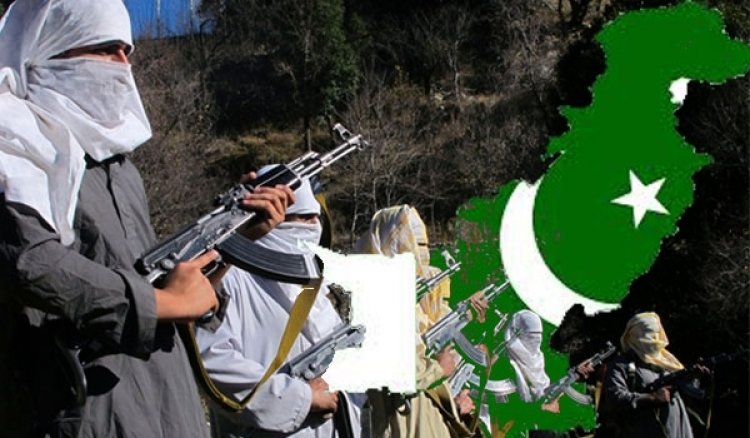Psychosocial Dynamics of Terrorism in Pakistan

Terrorism is frequently depicted as a calculated and extreme manifestation of violence driven by perceptions of injustice. However, the aftermath of terrorist incidents is often discussed without delving into the psychological and social factors that underpin such acts.
The onset of the Soviet-Afghan war in 1979 created an environment conducive to terrorism in the region. This conflict catalysed a profound transformation that reshaped the fabric of Pakistani society. Following the Soviet withdrawal, Pakistan grappled with the emergence of a culture steeped in violence and weaponisation, commonly referred to as the ‘Kalashnikov culture’ and ‘Talibanisation’.
Pakistan’s social landscape has long been marred by pervasive challenges such as illiteracy, disease, insecurity, and injustice. Since the tragic events of 9/11, Pakistan has been intricately entangled in the complexities of the ‘war on terrorism.’ While some argue that Pakistan serves as a breeding ground for terrorist organisations, it is undeniable that this turmoil has inflicted a heavy toll in terms of loss of innocent lives and economic revenue. These precarious conditions provide fertile ground for the proliferation of terrorism.
Since the events of ‘9/11’, Pakistan has found itself at the forefront of terrorism; here, the aim is to elucidate the psychosocial dimensions of terrorism in Pakistan, shedding light on the processes of violent radicalisation.
Understanding the psychosocial dynamics of terrorism in Pakistan necessitates a multifaceted examination encompassing historical, socio-cultural, economic, and political dimensions. Pakistan’s complex landscape, characterized by diverse ethnic, religious, and sectarian identities, has provided a fertile ground for the emergence and perpetuation of terrorist activities. Here’s an analysis of key factors contributing to the phenomenon.
Historical Context
Geopolitical manoeuvring, internal conflicts, and the legacy of colonialism mark Pakistan’s history. Post-independence, the country grappled with identity formation, often oscillating between secular and religious narratives. Historical grievances, particularly stemming from the partition of British India and subsequent conflicts, have contributed to deep-seated animosities and grievances exploited by terrorist groups.
Socio-Cultural Dynamics
The socio-cultural fabric of Pakistan is intricately woven with diverse religious and ethnic identities. While Islam serves as a unifying force, interpretations vary widely, leading to sectarian tensions and ideological divides. Marginalized communities, exacerbated by economic disparities and inadequate governance, become susceptible to radicalization and recruitment by extremist organizations.
Economic Factors
Socio-economic disparities, lack of opportunities, and governance failures have created fertile ground for terrorist recruitment and support networks. Economic grievances, particularly in peripheral regions like Balochistan and the Federally Administered Tribal Areas (FATA), have fuelled resentment and provided a breeding ground for extremist ideologies.
Political Environment: Pakistan’s tumultuous political landscape, characterised by instability, corruption, and military interventions, has hindered effective governance and counter-terrorism efforts. Political patronage of certain extremist groups for strategic purposes, both domestically and regionally, has further complicated efforts to eradicate terrorism.
External Influences
Pakistan’s strategic location and regional dynamics have made it susceptible to external influences and interventions, exacerbating internal conflicts. Proxy wars, particularly in neighbouring Afghanistan, have spilt over into Pakistan, fuelling the insurgency and terrorist activities.
Counter-Terrorism Efforts
Despite facing significant challenges, Pakistan has undertaken various counter-terrorism measures, including military operations, legislative reforms, and international cooperation. However, these efforts have been marred by allegations of human rights abuses, lack of coordination, and insufficient focus on addressing root causes.
Psychological Influence
The motivation behind terrorist acts in Pakistan is not a simple phenomenon but rather a result of a complex cognitive process. Terrorists are not solely driven by insanity or psychopathy; instead, their actions often stem from a profound search for personal significance and meaning. The socio-economic challenges and political turmoil prevalent in Pakistan influence this search. Terrorists adopt a binary mindset, viewing themselves as righteous and their victims as inherently evil, which removes doubts and justifies violence without remorse. The use of unmanned drones in Pakistani regions, resulting in civilian casualties, fuels anger and retaliation, perpetuating a cycle of revenge ingrained in Pakistani culture. Additionally, the concept of self-sacrifice and martyrdom, present in many religions, is exploited by extremist groups to recruit suicide bombers, particularly vulnerable youths, by promising heavenly rewards for their ultimate sacrifice. Despite efforts to counter this indoctrination, the recruitment of young suicide bombers remains a concerning issue.
Contribution of Religious Schools
Madrassas, Islamic religious schools, have been under scrutiny for their potential to radicalise young Muslims. While some madrassas provide education and support to impoverished families, a minority promote extremist ideologies. However, it’s essential to note that only a small fraction of terrorists have attended madrassas, indicating that recruitment methods vary. Efforts to combat extremism within religious institutions, such as conferences denouncing terrorism, have been initiated, yet the adoption of these messages remains uncertain. Furthermore, the internet plays a significant role in radicalisation, exploiting vulnerabilities and spreading extremist ideologies beyond the confines of traditional religious education.
The Link Between Terrorism and Mental Disorder
While some terrorists may exhibit signs of mental illness, establishing a direct causal relationship between mental disorder and terrorism is challenging. However, engaging in terrorist activities can exacerbate existing mental health issues. The aftermath of terrorism often leads to societal unrest and an increased risk of suicide and mental illness among affected populations.
Conclusion
Addressing the psychosocial factors driving terrorism in Pakistan is imperative for long-term solutions. The ongoing war on terror has inflicted deep emotional scars and resulted in the loss of countless innocent lives. Achieving peace and security in Pakistan requires understanding and addressing these psychological determinants. However, it’s crucial to acknowledge that the psychological dynamics of terrorism in Pakistan differ from those in Western countries, necessitating nuanced approaches to intervention and prevention tailored to the specific context of Pakistan.

 Ακολουθήστε το
Ακολουθήστε το